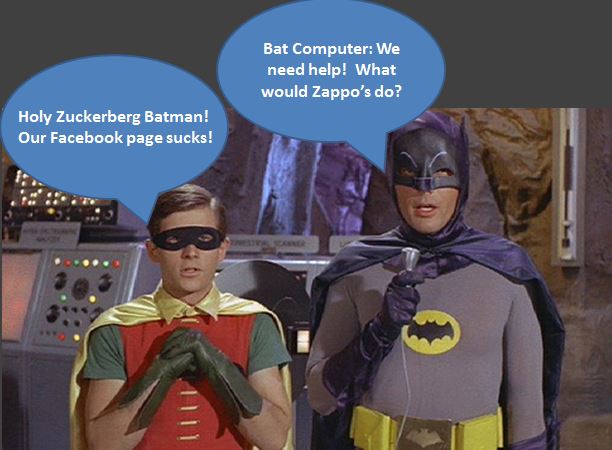By Mark Schaefer
I’ve been thinking about the surprisingly important role that business case studies play in our marketing efforts, and I’ve come to realize that in some cases, they may actually HURT our businesses. Let’s look at the two-edged sword that is the business case study …
The tipping point
First, let’s examine why case studies usually play such a helpful role in the evolution of digital business.
Case studies strike fear in the hearts of resistant business leaders. By embarrassing them with the obvious success of others, we sell fear in the morning and redemption in the afternoon … and that is not necessarily a bad thing.
Case studies give us something to shoot for. They teach us the best practices based on the lessons learned by others. But there is another less-known and important role, especially when it comes to technology adoption — they may actually propel an industry forward. Let me give you an example of what I mean.
There has been a tremendous amount of buzz about using social media to improve the supply chain (demand sensing, process monitoring, and collaboration). On paper it makes sense and McKinsey even did a study indicating that there might be billions in productivity savings available through this innovation. There are no fewer than five LinkedIn groups dedicated to this issue and it is a frequent conversation topic at conferences.
And yet after months of digging, I cannot find one meaningful case study indicating a tangible success story in this space! Lots of buzz, no beef.
I wonder, if this is such a hot topic, why isn’t there any evidence that people are actually doing it?
Where’s the beef?
Here is my theory — one reason the “social supply chain” is flagging is that there is still no iconic case study that companies can rally around. There is no tangible proof to demonstrate the value of this initiative and motivate a company to move ahead. There is no fear of being left behind to get things moving.
This is how change accelerated on the marketing side, right? Nothing really happened in this space until we started hearing about the social media successes of Zappos, Whole Foods, and Dell. These breath-taking case studies established proof that it could and should be done. They instilled a sense of fear and urgency in companies that made them take action.
So, we see that when a new technology is introduced, the well-publicized success of others can create a movement. On the supply chain side, that has not happened yet, but I am convinced that it will.
The dangerous side of social media case studies
But case studies also present two distinct dangers to business progress — 1) unrealistic expectations and 2) creating a false reality.
Unrealistic expectations — Let’s put something out on the table. Your company probably can’t be Zappos. That company has a unique business culture that allows it to propel cutting-edge social media ideas. It is intoxicating to think that if they can do it, we can do it … but in fact, you probably can’t. The very important and complex impact of business cultural is going to affect your success more than your hopes and dreams. If your company is boring, buttoned-up, and conservative, that is probably how your social media presence is going to show up too.
Case studies provide thrilling views of social media nirvana that may not be realistic for most companies. Your own social media personality will emerge based on a mix of unique talents, resources, and strategies.
The false reality — In our information-dense world, there is a tendency to paint the reality of the world in one color based on just a few data points … maybe even one data point. We’re just too busy to look deeper for meaning and truth.
One example of this is QR codes, a technology I characterized in 2011 as our generation’s 8-track tape. When QR codes first came on the scene, people were barking about this revolutionary marketing media. Why? One big reason was the many case studies coming out of Japan. They’re everywhere there. So, many people assumed the same thing would happen in America and Europe. In fact, since I wrote that article more than two years ago, I can count on one hand the number of truly interesting QR code applications I have seen.
We can’t paint the whole world with case studies because they worked in one single place. A corollary of this is the executive who says an idea will never work because his wife doesn’t like it. His wife has become the case study and he has painted the whole world with it. Yes, this happens too!
Any way, I hope you have enjoyed a different take on the value of case studies and I look forward to hearing about your experiences in the comment section. Join in, won’t you?
 Mark Schaefer is the chief blogger for this site, executive director of Schaefer Marketing Solutions, and the author of several best-selling digital marketing books. He is an acclaimed keynote speaker, college educator, and business consultant. The Marketing Companion podcast is among the top business podcasts in the world. Contact Mark to have him speak to your company event or conference soon.
Mark Schaefer is the chief blogger for this site, executive director of Schaefer Marketing Solutions, and the author of several best-selling digital marketing books. He is an acclaimed keynote speaker, college educator, and business consultant. The Marketing Companion podcast is among the top business podcasts in the world. Contact Mark to have him speak to your company event or conference soon.



